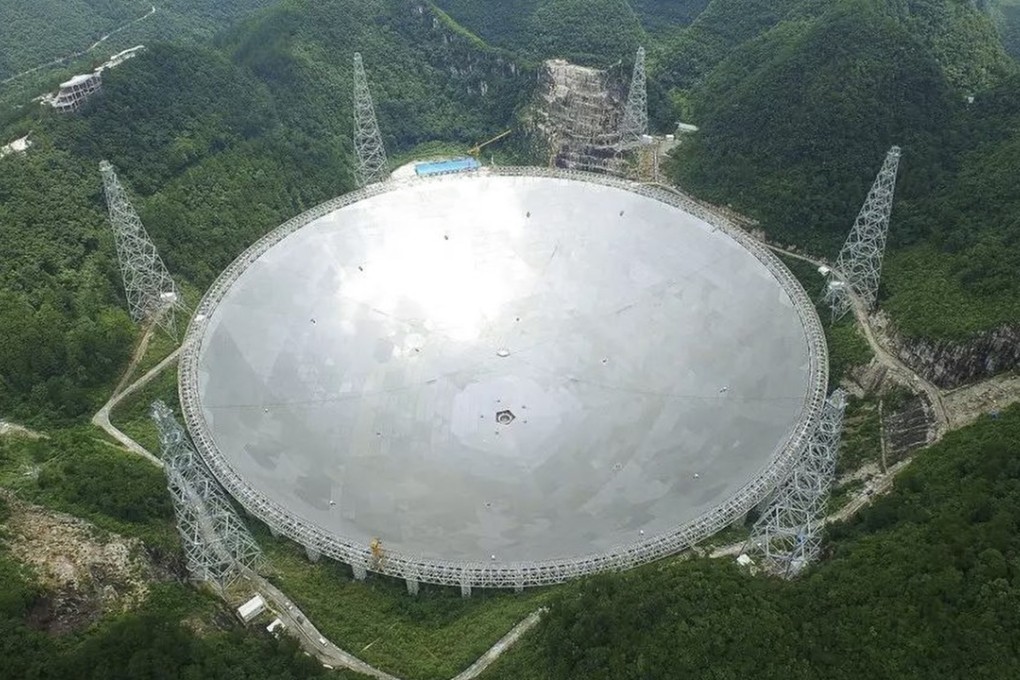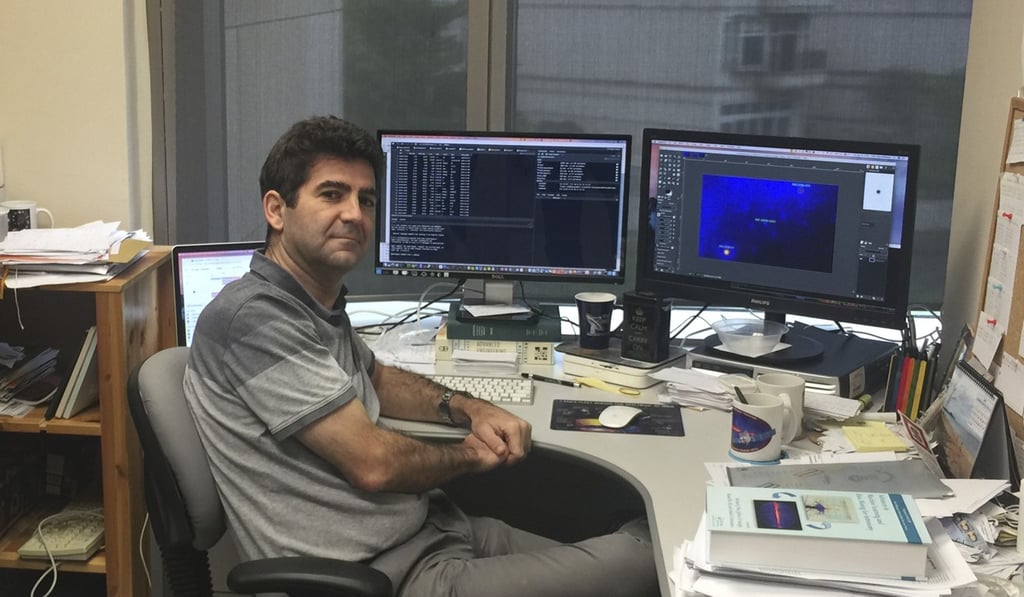Astronomers detect micro star with double sun’s mass crammed into sphere the size of Hong Kong
‘Lucky’ find was made at the Five-hundred-meter Aperture Spherical radio Telescope, or FAST, in China’s Guizhou province

A team of Hong Kong, mainland Chinese and American astronomers has discovered a rare celestial body that adds to the understanding of the beginnings of the universe using China’s “Heavenly Eye” – the world’s largest radio telescope.
The “lucky” find was made at the Five-hundred-meter Aperture Spherical radio Telescope, or FAST, in China’s Guizhou province earlier this month, and announced in The Astronomer’s Telegram, an internet-based publication that releases information on new observations.
Using Tianyan, as FAST is nicknamed locally, the team detected a new millisecond pulsar, a rapidly spinning micro star with a mass up to twice the sun’s crammed into a sphere the size of Hong Kong.

It was the first significant discovery for Heavenly Eye, whose construction was completed in 2016 and is now in a commissioning phase as instruments are installed and tested.
Team member Pablo Saz Parkinson, a research assistant professor at the University of Hong Kong’s physics department and HKU’s Laboratory for Space Research, said it was an exciting time for the city’s small astrophysics community as the Chinese Academy of Sciences had allowed local scientists “privileged access” to Tianyan so they could try to detect more millisecond pulsars. Only about 250 have been discovered.